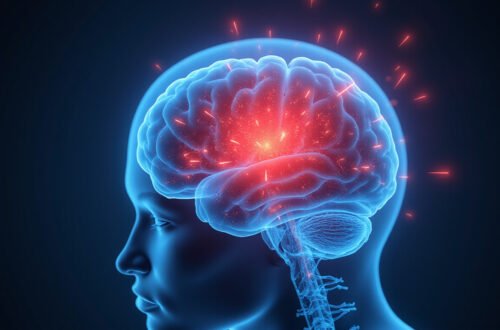Nerve pain, often described as sharp, shooting, or burning sensations, can significantly impact your quality of life. Whether caused by injury, diseases like diabetes, or other underlying conditions, finding effective relief is crucial. In this article, we will explore the top ten strategies for nerve pain relief, ranging from physical therapy and medication to natural remedies and lifestyle changes. Whether you’re seeking immediate relief or long-term management solutions, this comprehensive guide aims to equip you with the knowledge you need to combat nerve pain effectively.
Your Sciatica Pain-Free Future Starts Here – Click to Learn More!
Key Takeaways:
- Understanding the causes and symptoms of nerve pain is crucial for effective management.
- Physical therapy can provide targeted relief and improve mobility for those suffering from nerve pain.
- Various medication options are available, and it’s essential to consult a healthcare provider for the best choice.
- Natural remedies, including herbal treatments and dietary changes, may help alleviate nerve pain effectively.
- Making specific lifestyle changes can empower individuals to manage and reduce their nerve pain symptoms.
Understanding Nerve Pain: Causes and Symptoms
Nerve pain, often described as a sharp, shooting, or tingling sensation, can significantly impact daily life, making understanding its causes and symptoms essential for anyone experiencing discomfort. This type of pain arises when nerves become damaged, compressed, or irritated, often due to conditions such as diabetes, herniated discs, or neuropathy. Symptoms may vary widely, with patients reporting not only persistent pain but also numbness, weakness, and even heightened sensitivity to touch. Recognizing these signs early is crucial, as it opens the door to various nerve pain relief options, including physical therapy, medication, and lifestyle changes. Understanding the underlying issues contributing to nerve pain empowers individuals to engage in meaningful conversations with their healthcare providers, paving the way for effective management strategies tailored to their unique needs.
The Role of Physical Therapy in Nerve Pain Relief
Physical therapy plays a crucial role in nerve pain relief by employing a range of techniques designed to address both the source of the pain and its symptoms. By leveraging manual therapy, targeted exercises, and education on posture and body mechanics, physical therapists can help patients relieve compression on nerves and improve their overall function. Patients suffering from conditions like sciatica, carpal tunnel syndrome, or neuropathy may benefit from tailored exercise programs that enhance flexibility and strength in the affected areas while reducing inflammation. Moreover, techniques such as electrical stimulation or ultrasound therapy can stimulate blood flow and promote healing. Engaging in a collaborative therapy process not only aids in alleviating nerve pain but also empowers individuals with tools and strategies for long-term management of their condition. Through this mindful and supportive approach, physical therapy can significantly enhance quality of life for those grappling with nerve pain.
‘Pain is inevitable, suffering is optional.’ – Haruki Murakami
Medication Options for Managing Nerve Pain
When it comes to finding effective nerve pain relief, there are a variety of medication options available that can significantly improve your quality of life. Over-the-counter pain relievers like acetaminophen and nonsteroidal anti-inflammatory drugs (NSAIDs) may help manage mild nerve pain, but for more severe cases, doctors often prescribe medications specifically designed to target nerve-related discomfort. Antidepressants, such as amitriptyline or duloxetine, and anticonvulsants like gabapentin or pregabalin have shown promising results in alleviating nerve pain symptoms by modulating the way the nervous system transmits pain signals. Additionally, topical treatments containing capsaicin or lidocaine can provide localized relief without the systemic side effects associated with oral medications. However, it’s essential to consult with a healthcare provider to determine the best course of action tailored to individual needs, as responses to these medications can vary widely from person to person.
Your Sciatica Pain-Free Future Starts Here – Click to Learn More!
Natural Remedies for Nerve Pain Relief
Nerve pain relief can often feel elusive for those suffering from chronic conditions, but numerous natural remedies may offer solace. For instance, the anti-inflammatory properties of turmeric, coupled with its active ingredient curcumin, have shown promising results in reducing nerve pain when ingested or applied topically. Similarly, omega-3 fatty acids found in fish oil have been recognized for their potential to support nerve health and reduce inflammation. Incorporating practices like yoga and meditation not only helps in managing stress but has been found to improve overall pain management. Additionally, herbal supplements such as St. John’s Wort and capsicum can provide a gentle form of relief by blocking pain signals. Always consult with a healthcare professional before beginning any new treatment regimen to ensure the best approach for your individual needs.
Lifestyle Changes to Alleviate Nerve Pain
Making strategic lifestyle changes can play a significant role in achieving nerve pain relief and improving overall well-being. One essential step is to incorporate regular physical activity into your routine; gentle exercises such as walking, swimming, or yoga can enhance blood circulation, reduce inflammation, and promote the release of endorphins, which are natural pain relievers. Additionally, maintaining a balanced diet rich in anti-inflammatory foods—such as fatty fish, leafy greens, nuts, and berries—can provide your body with the necessary nutrients to support nerve health. It is also crucial to manage stress effectively, as chronic stress can exacerbate pain; consider mindfulness practices, meditation, or deep-breathing exercises to cultivate a sense of calm. Staying hydrated is another often-overlooked aspect, as proper hydration supports optimal nerve function. Lastly, adopting a consistent sleep schedule and ensuring you get quality rest can further help in mitigating nerve pain, allowing your body the time it needs to repair and recover. By making these lifestyle adjustments, you can empower yourself to take charge of your health and significantly alleviate nerve pain.




